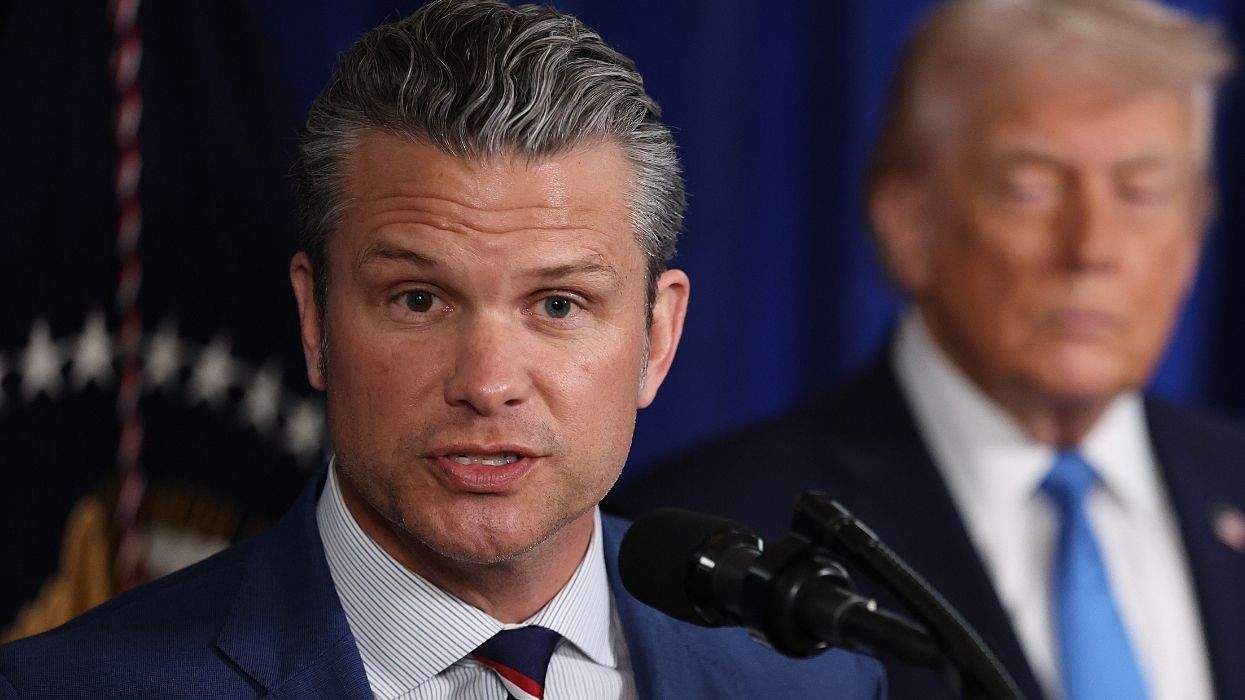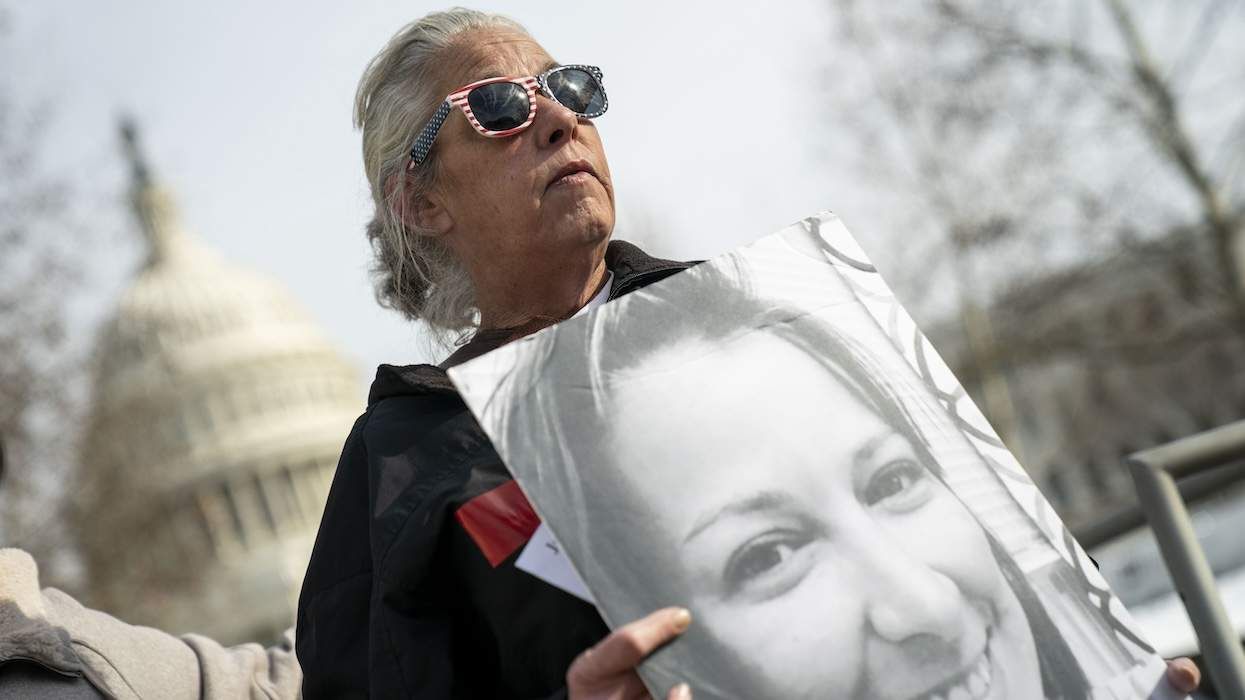Marriage equality has undeniably transformed the lives of many LGBTQ+ people, offering legal recognition and societal acceptance that were once unimaginable. However, a new study by the Williams Institute at UCLA School of Law reveals that fears of potential reversal shadow these gains.
Keep up with the latest in LGBTQ+ news and politics. Sign up for The Advocate's email newsletter.
According to the survey, 80 percent of married same-sex couples in the United States are concerned about the future of marriage equality.
The study, which surveyed 484 married LGBTQ+ people across the nation, found that 83 percent of respondents reported increased feelings of safety and security, 75 percent experienced higher life satisfaction, and 67 percent noted improved relationship stability due to their marriages. These findings underscore the profound impact of legal recognition on the well-being of same-sex couples.
“The many material, emotional, and symbolic benefits associated with marriage seem to have significant impacts on the lives and well-being of LGBTQ+ people,” said study author Abbie E. Goldberg, an affiliated scholar at the Williams Institute and professor of psychology at Clark University. “While many LGBTQ+ people did not consider marriage a possibility growing up, it has made a profound difference in their lives, offering a greater sense of security, the ability to make important decisions together, and increased acceptance from both society and family.”
Yet, despite these benefits, the possibility of losing marriage rights looms large. One in four couples has taken proactive measures to protect their families, including speeding up marriage plans, securing second-parent adoptions, and considering relocation to more secure legal environments.
Related: Justice Sotomayor: Supreme Court ruling in immigration case threatens marriage equality
The political climate in the United States has become increasingly hostile towards LGBTQ+ rights. Several states have enacted laws that restrict the rights of LGBTQ+ individuals, leading to a pervasive sense of vulnerability among same-sex couples.
The study also explores the motivations behind same-sex marriages. Most cited love, companionship, and legal protections as their primary reasons for getting married. Additionally, over 30 percent of the surveyed couples have children, with 25 percent expressing a desire to have children in the future. Marriage has influenced the parenting plans of 20 percent of respondents.
According to the report, the benefits of marriage are clear for those with children. Fifty-eight percent of respondents with children reported that marriage provided more security for their children through legal protections, a greater sense of legitimacy, and enhanced family stability. Nearly 60 percent noted that marriage positively impacted their financial planning, including saving, investing, preparing for retirement, affording a home, and supporting each other in times of illness.
Marriage has also facilitated access to essential benefits for same-sex couples. Fifty-two percent of respondents said that marriage equality enabled them to access workplace health insurance benefits that were previously unavailable. Furthermore, most couples (93 percent) lived together before getting married, with 70 percent viewing cohabitation as a step toward marriage. Married same-sex couples were more likely to buy a house together and maintain joint bank accounts than their unmarried counterparts.
Caregiving is another significant aspect of many same-sex marriages. Fifteen percent of respondents indicated that they were caregivers for their spouses, and 12 percent received caregiving from their spouses. Among those who had a wedding, more than one-third received financial support from their families, and 29 percent from their spouse’s family. However, discrimination during wedding planning remains an issue, with 11 percent of couples experiencing bias from religious institutions, city officials, and wedding vendors, according to the report.
This study comes amidst significant legal and political developments. In December 2022, President Joe Biden signed the Respect for Marriage Act into law, ensuring that marriage equality for same-sex and interracial couples remains protected regardless of future U.S. Supreme Court decisions.
Nevertheless, the political landscape remains precarious. Ultra-conservative Supreme Court Justice Clarence Thomas has expressed a desire to revisit and potentially overturn landmark decisions on contraception, private consensual sex, and same-sex marriage. In his concurring opinion in the June 2022 Dobbs v. Jackson Women’s Health Organization ruling, which overturned Roe v. Wade, Thomas called for reconsideration of these rulings, arguing that the Due Process Clause does not secure any substantive rights.
Public support for same-sex marriage remains high even if it hasn't increased. According to a Gallup poll conducted in May 2023, 71 percent of Americans believe same-sex marriage should be legal, matching the high recorded in 2022. This support has been consistently above 50 percent since the early 2010s, reflecting a significant shift in public opinion over the past few decades. The groups most supportive of same-sex marriage include young adults (89 percent), Democrats (84 percent), and infrequent churchgoers (83 percent). However, support remains relatively low among Republicans (49 percent) and weekly churchgoers (41 percent).





































































Charlie Kirk DID say stoning gay people was the 'perfect law' — and these other heinous quotes